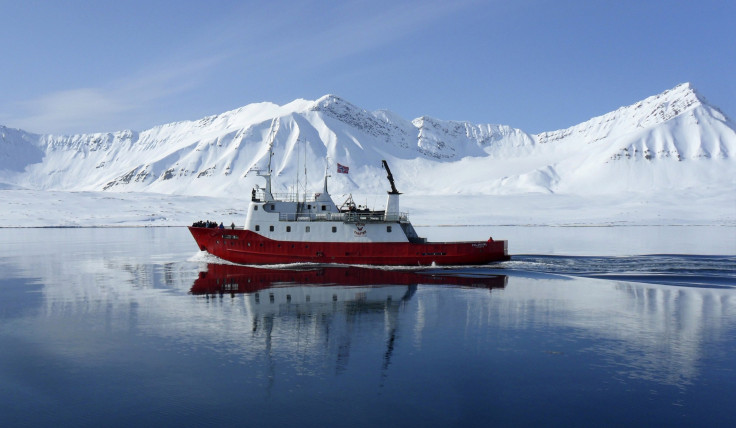Cost Of A Likely Giant ‘Burp’ Of Arctic Methane Could Equal Size Of World Economy In 2012

Possible methane emissions, as a result of shrinking sea ice from one region in the Arctic, may produce a phenomena that could cost as much as $60 trillion, which is about the size of the global economy in 2012, a new research said.
“The global impact of a warming Arctic is an economic time-bomb,” Gail Whiteman, professor of sustainability, management and climate change in the Rotterdam School of Management, or RMS, at Erasmus University in the Netherlands, said in a statement, on Wednesday.
Whiteman said that global leaders, and international organizations such as the World Economic Forum and the International Monetary Fund need to pay more attention to the Arctic methane projections.
“The mean impacts of just this one effect -- $60 trillion -- approaches the $70-trillion value of the world economy in 2012,” she said.
According to the research, conducted by scientists at RSM and the University of Cambridge, Arctic sea ice is melting at an unprecedented rate as the North Pole warms -- a phenomenon that leads to thawing of offshore frozen soil and an emission of methane, a powerful greenhouse gas.
Earlier studies have revealed that there are huge reservoirs of methane in the Arctic, containing hundreds of billions of tonnes of the gas, which is more potent than carbon dioxide in creating global warming conditions.
The new research in question, published in the journal Nature, on Thursday, said that methane below the East Siberian Sea -- some 50 billion tonnes -- is likely to be emitted either steadily over the next 30 years, or in one giant “burp,” which could have a global impact of trillions of dollars.
The results were achieved using a modeling method called “PAGE09,” which is currently used by the U.S. Environmental Protection Agency. An earlier version of the method was used for the UK Government’s Stern Review in 2006.
“The methane release would bring forward the date at which the global mean temperature rise exceeds 2 degrees C by between 15 and 35 years,” Chris Hope, reader in Policy Modeling at the Cambridge Judge Business School in the University of Cambridge, said in the statement.
While the economic impact discussed in the study only accounted for the methane existing on the East Siberian Arctic Shelf, if other impacts, such as ocean acidification are factored in, the total price of Arctic warming could be much higher, according to the study.
Moreover, the scientists noted, some 80 percent of these costs will be borne by developing countries, as they experience more extreme weather, flooding, droughts and poorer health over the coming years.
© Copyright IBTimes 2025. All rights reserved.






















